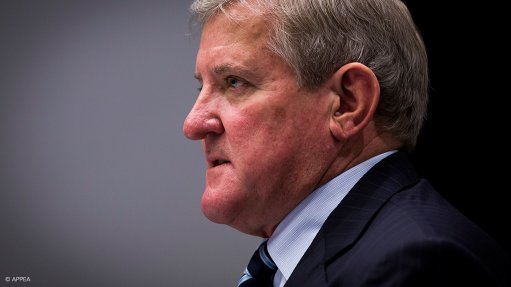
Ian Macfarlane
Photo by: APPEA
PERTH (miningweekly.com) – Competitive market forces, and not governments, should decide which energy projects received the green light for development, Industry Minister Ian Macfarlane said on Tuesday.
Addressing the second day of the Australian Petroleum Production and Exploration Association (Appea) conference, in Perth, Macfarlane admitted that Australia was faced with rising liquefied natural gas (LNG) project costs, while facing stiffer competition from emerging exporters like the US, Canada and East Africa.
“The high Australian dollar, rising labour and material costs, logistical challenges and weather delays are all contributory factors,” the Minister said.
Macfarlane said that the government was working with the industry to reduce costs, ensure access to skilled labour and increase productivity and efficiency.
“Beyond that, we need to build on the strengths that have stood us in good stead to make Australia competitive in the market. While no one is advocating lower wages for workers, our higher wages must come with greater productivity gains,” he said.
“It is in the best interest of workers and unions to engage constructively with companies. There is no room in the increasingly competitive sector for outrageous demands.”
He added that Australia could not expect to compete with other LNG producers as long as construction and operating costs were exorbitant.
“All parties have to bear this in mind, given the greater competition for the international LNG market. If Australian projects price themselves out of that market, then it’s not only workers, but also the national economy that stands to lose out.”
Despite the challenges facing the market, Australia’s competitive advantages should not be understated, Macfarlane told delegates.
He noted that the country’s resource and political security provided a considerably safer investment environment for the capital-intensive development projects, adding that companies operating in Australia had excellent records of bringing significant projects to fruition and managing risk in the current challenging global conditions.
“Australia has great potential to become an energy leader and the world’s largest LNG producer. We are consolidating our place as an energy and resource superpower. We must work together to tackle the domestic and international challenges we face, to improve the competitiveness of our energy industry,” Macfarlane said.